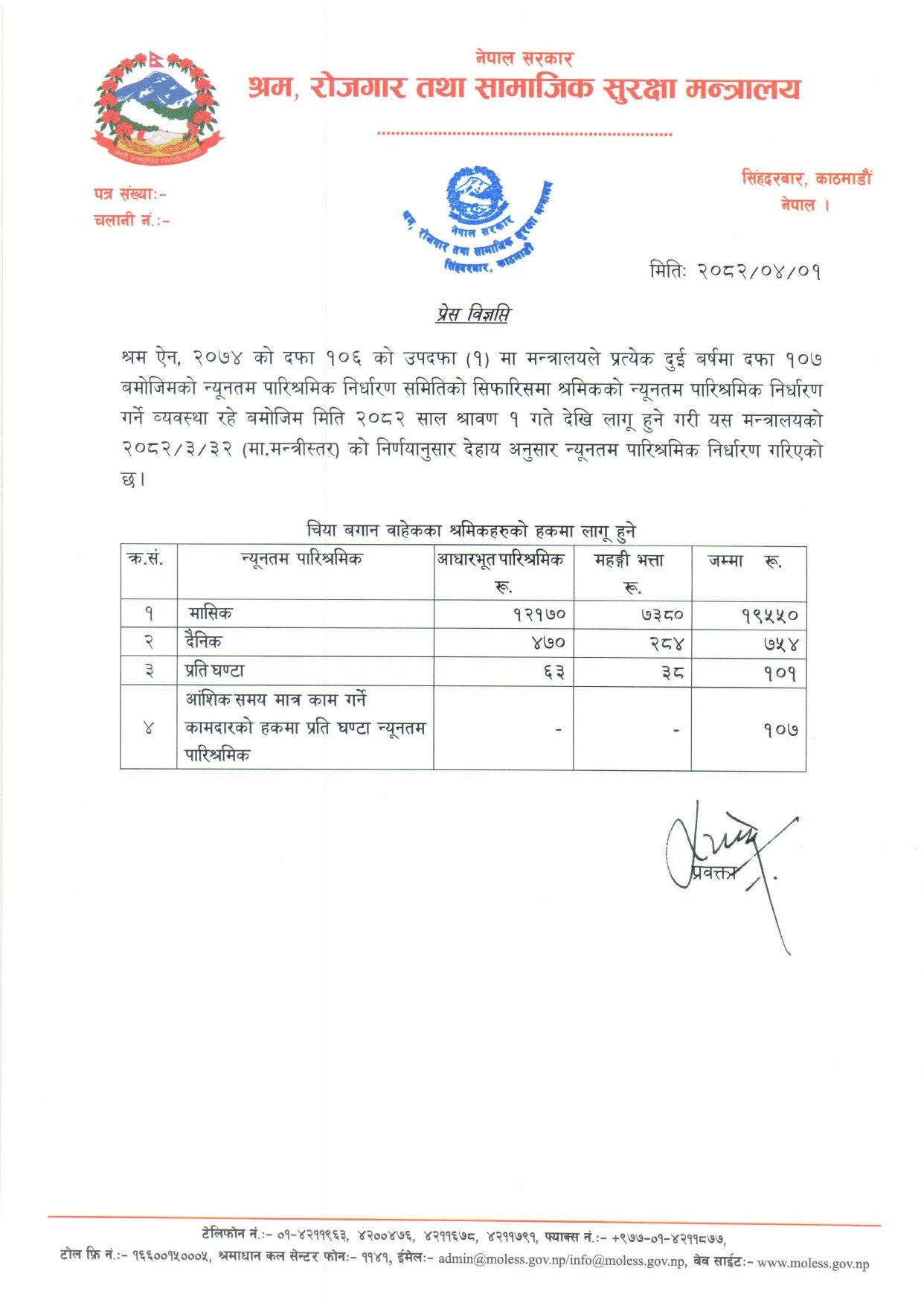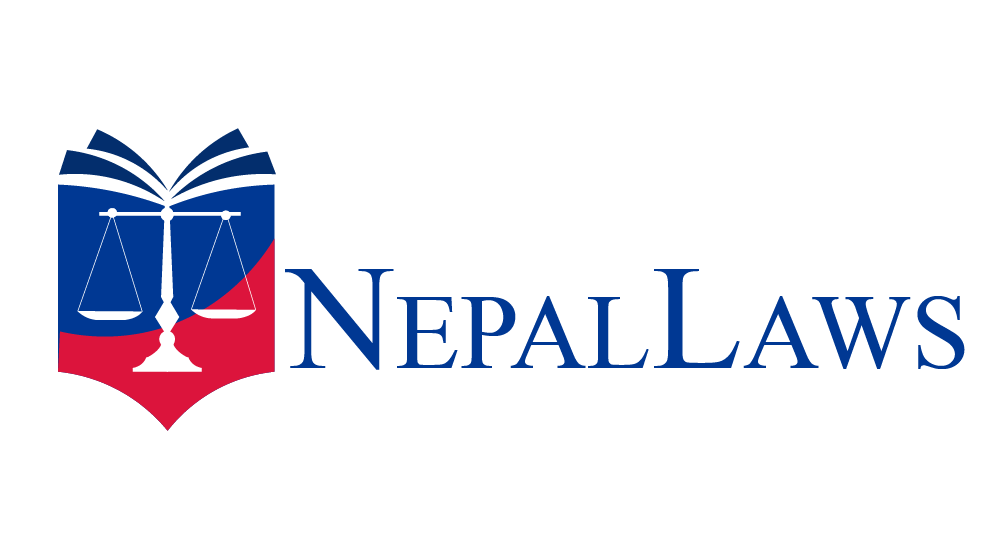The minimum monthly wage for workers in Nepal has now been increased to Rs 19,550, following an agreement between the government, employers, and trade unions.
This decision was made during a tripartite meeting held at the Ministry of Labour, Employment and Social Security. The new rate replaces the earlier minimum wage of Rs 17,300 per month.
According to a press release issued by the Ministry on 17 July 2025, the new wage has officially come into effect and is aimed at supporting workers in line with rising living costs.
Key Highlights of the New Wage Structure
If you are following labour laws or employment standards in Nepal, these updated wage figures are essential to be aware of.
Here is a clear summary of the revised rates:
| Details | Monthly (NRP) | Daily Wages (NRP) | Hourly Wage (NRP) |
|---|---|---|---|
| Basic Salary | 12,170 | 470 | 63 |
| Dearness Allowance | 7,380 | 284 | 38 |
| Revised Minimum Wages | 19,550 | 754 | 101 |
| Social Security Fund (20%) | 2,434 | 94 | 12 |
| Total Cost to Company | 21,984 | 848 | 113 |
As per the provision in Sub-section (1) of Section 106 of the Labour Act, 2074, the Ministry shall determine the minimum wage of the workers every two years on the recommendation of the Minimum Wage Determination Committee as per Section 107.
Accordingly, the minimum wage has been determined as follows, as per the decision of this Ministry dated 2082/3/32 (Honourable Ministerial level) with effect from Shravan 1, 2082 BS.

Impact on Employers and Employees
With the government’s recent decision to raise the minimum wage, both employers and employees are set to experience major changes.
Understanding the effects of this adjustment is key to ensuring a smooth transition and maximising its benefits for all parties involved.
For Employers
- Review and update payroll systems and HR policies by 15 July 2025
- Adjust operational budgets to accommodate.
- Ensure strict compliance with the Labour Act to avoid legal penalties.
For Employees
- The wage increase offers much-needed financial support in the face of rising living expenses.
- It promotes greater job security and enhances overall well-being and quality of life.
Conclusion
The new minimum wage of Rs 19,550 marks a significant step toward fairer pay in Nepal, benefiting workers while encouraging businesses to adapt responsibly. It is important for companies to follow the rules so everyone can adjust smoothly.




